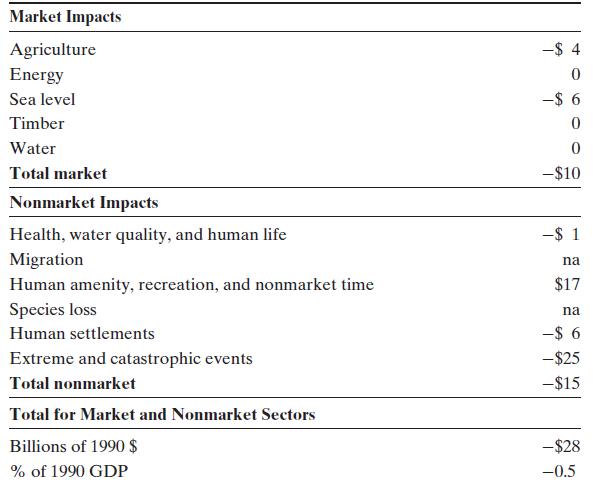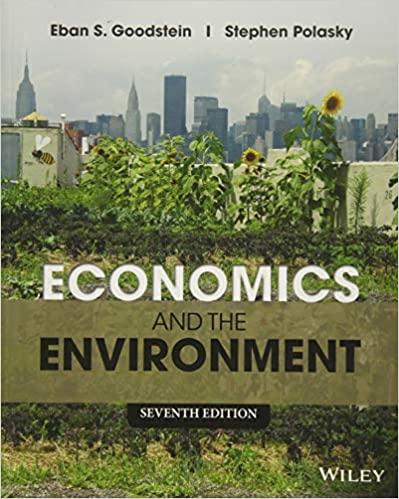Estimating the economic costs of global warming is quite a difficult process. In a book examining the
Question:
Estimating the economic costs of global warming is quite a difficult process. In a book examining the issue, Nordhaus and Boyer (2000) provided this disclaimer on page 98:
“Attempts to estimate the impacts of climate change remain highly speculative. Outside of agriculture and sea-level rise the number of scholarly studies of the economic impacts of climate change remains small.” Nevertheless, they undertook the process, as shown in Table 1.1.
Table 1.1

Nordhaus and Boyer find small negative impacts for agriculture (–$4 billion) and sea-level rise (–$6 billion); argue that warming is likely to yield significant benefits for outdoor recreation (in crude terms, more golf days;+$17 billion); and maintain that the biggest negative impacts of climate change are likely to come from destroying parts of historically or culturally unique human settlements such as New Orleans or Olympia, Washington (–$6 billion), or from catastrophic climate change (–$28 billion). Overall they find a negative impact of only 0.5% of GDP. (Notice that this figure leaves out the costs of species extinction—no accounting for coral reefs here.) The analysis that underlies calls for “small” taxes on carbon dioxide ($10 per ton).
a. Is this an efficiency, ecological sustainability, or safety standard? Why?
b. One might question the value of basing environmental decisions on data that are “highly speculative.” How do you think Nordhaus defends drawing conclusions based on numbers like those in Table 1.1?
Step by Step Answer:

Economics And The Environment
ISBN: 9781118539729
7th Edition
Authors: Eban S. Goodstein, Stephen Polasky





